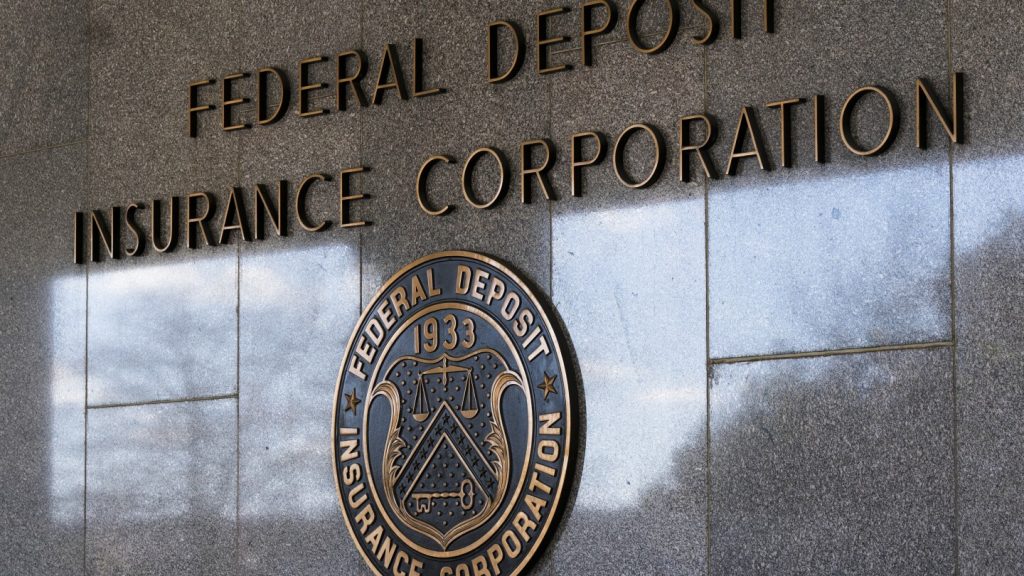The Federal Deposit Insurance Corp. (FDIC) has closed Republic First Bank, a regional lender operating in Pennsylvania, New Jersey, and New York. The bank, based in Philadelphia and operating as Republic Bank, had assets totaling $6 billion and deposits of $4 billion as of January 31. Fulton Bank, based in Lancaster, Pennsylvania, has agreed to take over most of Republic Bank’s assets and deposits. Republic Bank’s 32 branches will reopen as branches of Fulton Bank, starting as early as Saturday. Depositors of Republic First Bank can access their funds through checks or ATMs as early as Friday night. The FDIC estimates that the failure of Republic Bank will cost the deposit insurance fund $667 million, making it the first FDIC-insured institution to fail in the U.S. this year.
The closure of Republic First Bank is a rare event in a strong economy, as only an average of four or five banks close each year. However, rising interest rates and falling commercial real estate values have increased financial risks for many regional and community banks, especially those with outstanding loans backed by properties that have lost value. The challenges of refinancing these loans have put banks at risk of failure, particularly those dealing with office buildings facing surging vacancy rates following the impact of the COVID-19 pandemic.
Last month, an investor group that includes Steven Mnuchin, who previously served as U.S. Treasury secretary during the Trump administration, pledged over $1 billion to rescue New York Community Bancorp. The bank has been struggling due to weakness in the commercial real estate market and difficulties resulting from its acquisition of a distressed bank. The financial troubles faced by New York Community Bancorp are indicative of the broader challenges being faced by regional and community banks across the country, as they navigate the changing economic landscape and work to maintain stability in a challenging environment.
The closure of Republic First Bank serves as a reminder of the importance of strong financial oversight and regulation in the banking industry. The FDIC plays a crucial role in ensuring the stability of the banking system and protecting depositors in the event of bank failures. Its actions in closing Republic Bank and facilitating its acquisition by Fulton Bank demonstrate the agency’s commitment to safeguarding the interests of depositors and preserving the integrity of the banking sector. The resolution of Republic Bank’s failure serves as a testament to the strength and resilience of the U.S. banking system, which has weathered numerous challenges over the years.
As Republic Bank customers transition to become customers of Fulton Bank, they can expect minimal disruption to their banking services. The branches previously operated by Republic Bank will now operate under the Fulton Bank brand, providing customers with access to a wider network of branches and services. Depositors can continue to access their funds through checks or ATMs, ensuring that their financial needs are met in a timely manner. The acquisition of Republic Bank’s assets and deposits by Fulton Bank will help to ensure the continuity of banking services in the regions previously served by Republic Bank, allowing customers to maintain their financial relationships with minimal disruption.
The closure of Republic First Bank highlights the ongoing challenges facing the banking industry and the need for institutions to adapt to changing economic conditions. As interest rates rise and commercial real estate values fluctuate, banks must carefully manage their loan portfolios and maintain adequate reserves to withstand unexpected shocks. The FDIC’s role in overseeing the resolution of failed banks and facilitating their acquisition by stronger institutions is critical in ensuring the stability of the financial system. By addressing the challenges faced by struggling banks and protecting the interests of depositors, the FDIC helps to preserve confidence in the banking sector and support economic growth and stability.


